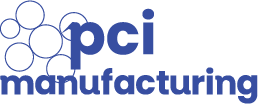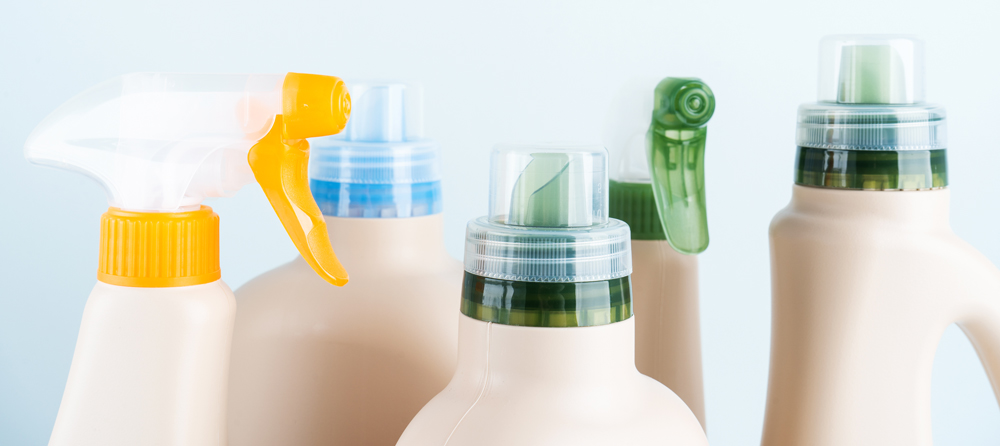There are important differences between industrial cleaning products and household cleaning products—both in terms of the properties of these products, and in terms of how they have to be manufactured.
To get a feel for the difference, imagine a scenario where, magically, your household expands from, say, three people to three thousand. All three thousand people visit your house daily. Imagine the traffic your flooring, bathrooms, living room, and kitchen would see on a daily basis.
Most household cleaning supplies used to clean an average family home would be insufficient for a heavily frequented business space like this—and even if they could clean the space, the cost of those products would bankrupt the buyer.
But every day of the year, this is the predicament office buildings, hotels, supermarkets, coffee shops, restaurants, bars, colleges, and hospitals face.
Knowing where and how you will use your cleaning chemicals is crucial to understanding what needs to go into the manufacturing process—especially if you are looking to contract out that manufacturing.
Industrial Cleaning Products Are Not Stronger Versions of Household Cleaning Products
The main factor to consider when purchasing household cleaning supplies is whether the items will efficiently clean your floors, bathrooms, or kitchen. The factors are more complicated for commercial cleaning products.
To compare: Many domestic cleaning supplies are designed only for weekly or biweekly use in the home. They are not designed for frequent use. As a result, it often costs less to manufacture them than commercial cleaning products.
By comparison, industrial cleaning products are much more complex. PCI understands the nuances and differences between household, industrial & institutional cleaning products, and offers all the benefits of a state-of-the-art turnkey contract manufacturer. Essentially we take over the entire supply chain for you:
- We eliminate up-front investment costs (equipment, etc.) to manufacture those products.
- We have the specialized equipment necessary to meet your specs.
- We’ve already scaled our operations to meet your needs, passing on substantial savings.
- We have already recruited and hired engineers, chemists, and other specialists with advanced education and experience .
- We know how to satisfy the regulatory hurdles for OSHA, EPA, FDA, and so on.
- We shorten the distance between idea and finished product.
- We have the institutional knowledge in-house, as well as the experience you need to get your products into the hands of your customers as quickly as possible.
Industrial Cleaning Products Are Regulated by OSHA; Household Cleaners Are Not
The first difference is that industrial cleaners are regulated by the Occupational Safety and Health Administration (OSHA), a federal agency. Under OSHA’s rules, companies must use chemicals safely in their workplaces if they have employees.
Industrial cleaners must comply with OSHA standards. These not only include using materials that can be used safely at the frequency with which industrial cleaners are used, but also proper labeling of said cleaners. By contrast, OSHA does not govern household cleaners; therefore, there are fewer rules about how they should be manufactured for safe use and storage in a home.
Additionally, some companies have special criteria set forth by the OSHA for their specific industries. For instance, hospitals are subject to stricter regulations than restaurants and other food service establishments. This implies that the manufacturing process for industrial cleaners is more demanding. PCI has the processes, chemists, and equipment to manufacture your products in a cost-effective manner.
In addition to OSHA regulations, establishments that serve food must comply with stringent Department of Health regulations. Among these is ensuring that surfaces have been cleaned, sanitized, and disinfected with food-grade chemicals.
Industrial Cleaning Products Must Be Durable
Durability is one of the most critical factors differentiating household cleaners from industrial ones. Because a professional environment requires a disinfectant with long-lasting effects, producers ensure that treated surfaces maintain their cleanliness for the time specified in the claim. This durability reduces the number of times surfaces need disinfecting throughout the day which saves on product and labor costs.
The Environmental Impact of Industrial Cleaning Products vs. Household
Industrial cleaning products are not just stronger versions of household cleaning products. They are designed to be used in harsh environments and are often strong enough to remove grease, oil, and other substances that can cause damage to equipment.
While you might think industrial cleaners would be more toxic than household cleaners because of their strength, this isn’t necessarily true.
Many industrial cleaning products are biodegradable or environmentally friendly because they meet environmental regulations. Household cleaners have different requirements than industrial cleaners, so there’s no need for them to meet the same standards.
Many household cleaners contain ingredients that aren’t safe for the environment. For example, ammonia is often used in cleaning products because it effectively cuts through grease and grime, but it also harms fish and other aquatic life if it enters waterways.
PCI’s Superior Quality
Whether your company produces industrial or household cleaners, PCI has the quality standards in place to make you feel comfortable putting your brand name on our bottle.
The team at PCI has extensive experience working with brands all over the country to produce cost-effective Household, Industrial & Institutional Cleaning (HI&I) products on time. From raw ingredients to finished goods, we manage and maintain a global supply chain so your end-users enjoy consistent quality every time they use your products.
For more questions or to schedule a meeting, please contact PCI to learn more about our facilities, our experience, and how our hands-on team can work with you today.

